Recent Blog Posts
Personal Bankruptcy: Frequently Asked Questions
 If you find yourself avoiding your mailbox and ignoring your phone when it rings because you dread being asked – again – to pay overdue balances on your debts, it may be time to start thinking about filing for personal bankruptcy. Depending on your unique needs and the nature of your financial situation, filing for bankruptcy could help you to achieve a fresh financial start and help to start building a strong, stable financial future.
If you find yourself avoiding your mailbox and ignoring your phone when it rings because you dread being asked – again – to pay overdue balances on your debts, it may be time to start thinking about filing for personal bankruptcy. Depending on your unique needs and the nature of your financial situation, filing for bankruptcy could help you to achieve a fresh financial start and help to start building a strong, stable financial future.
If you are hesitating to file for bankruptcy because you do not yet have enough information about how the process works and whether pursuing a bankruptcy discharge is the best solution for your circumstances, you can begin formulating an informed approach by reviewing some basic information that is relevant to most filers.
What Are the Primary Differences Between Chapter 7 and Chapter 13 Bankruptcy?
Chapter 7 bankruptcy is made available to low-income filers. Eligible debtors are not required to repay their creditors before benefitting from a discharge. A small minority of filers will have some of their non-exempt assets sold by the trustee assigned to their case in order to repay creditors in order of legally-mandated priority.
When Parents of Minors File for Bankruptcy
 When an individual or a married couple is struggling with debt, their response to the situation often impacts others as well. Most urgently, debt challenges tend to affect everyone who lives under the same roof as a debtor. Meaning, if someone is struggling with debt significantly enough that they are considering filing for bankruptcy, their circumstances almost certainly affect any minor children who reside with them. Sometimes, the benefits that bankruptcy can provide children serve as powerful motivations for parents to weather the complexities of the process with grace and determination.
When an individual or a married couple is struggling with debt, their response to the situation often impacts others as well. Most urgently, debt challenges tend to affect everyone who lives under the same roof as a debtor. Meaning, if someone is struggling with debt significantly enough that they are considering filing for bankruptcy, their circumstances almost certainly affect any minor children who reside with them. Sometimes, the benefits that bankruptcy can provide children serve as powerful motivations for parents to weather the complexities of the process with grace and determination.
Stability and Stress Reduction
It is not a secret that children crave stability. A child’s sense of whether or not the fundamental structure of their home life is stable can affect everything from their health to their academics. Additionally, if instability remains a driving force in a child’s life for too long, the effects of that reality can ripple all the way into adulthood and even into the next generation’s experience of the world. Similarly, when a child’s home life is unusually stressful – perhaps because a parent is working far too hard and getting far too little sleep as they struggle to catch up on past-due bills – that challenge can impact a child’s well-being profoundly as well.
Will My Car Loan Be Discharged if I File for Chapter 7 Bankruptcy in Texas?
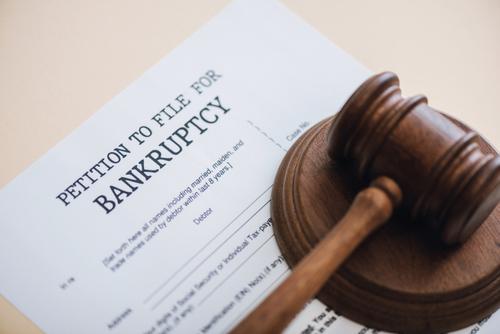 One of the main reasons why individuals start researching the bankruptcy process is that some of their property is at risk of being seized by a creditor. Mortgage lenders may threaten foreclosure, while car dealerships and other retailers of valuable assets paid off via installment contracts may threaten repossession. While the primary benefit of filing for Chapter 7 bankruptcy is usually securing a discharge of eligible debt balances, halting collections actions such as the repossession of a vehicle can also have a meaningful impact on a filer’s financial well-being.
One of the main reasons why individuals start researching the bankruptcy process is that some of their property is at risk of being seized by a creditor. Mortgage lenders may threaten foreclosure, while car dealerships and other retailers of valuable assets paid off via installment contracts may threaten repossession. While the primary benefit of filing for Chapter 7 bankruptcy is usually securing a discharge of eligible debt balances, halting collections actions such as the repossession of a vehicle can also have a meaningful impact on a filer’s financial well-being.
Unfortunately, some filers are under the impression that bankruptcy results in both the end of collections actions of all kinds and the discharge of all kinds of debts. But, just as some collections actions – including those involving overdue child support – are not subject to the restrictions of the automatic stay, some debt balances cannot be discharged outright as a result of the bankruptcy process.
Are You Concerned About Bankruptcy Stigma?
 In 2008, the housing market cratered, the banking system was teetering on the verge of collapse, and the economy slowed to a crawl. As a result, millions of Americans lost their jobs and many lost their homes. There was much discussion of why Wall Street was receiving bailouts when Main Street was struggling to keep going, day after day.
In 2008, the housing market cratered, the banking system was teetering on the verge of collapse, and the economy slowed to a crawl. As a result, millions of Americans lost their jobs and many lost their homes. There was much discussion of why Wall Street was receiving bailouts when Main Street was struggling to keep going, day after day.
This consequential period in American history served as a wake-up call for many who had long-held negative views about the bankruptcy process. After watching massive corporations receive assistance from the government in order to remain afloat while hard-working friends, family, and neighbors were forced from their homes and struggled to buy groceries, a perceptible shift in public attitudes concerning the personal bankruptcy process occurred. What had long been viewed as an abdication of responsibility was now largely perceived as a lifeline for those who had - by and large – suffered hardship through no fault of their own.
What Is a Creditor Matrix?
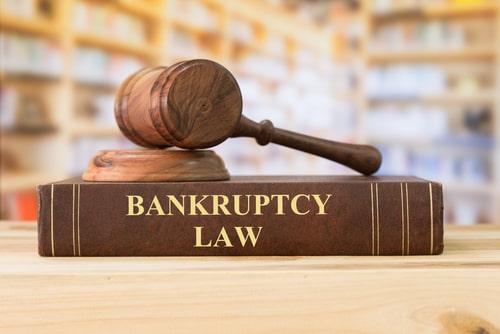 When an individual files for bankruptcy, the court notifies their creditors of this legal action. The court takes this step partially to protect creditors’ interests and partially to ensure that the filer can benefit from the protection of the automatic stay. In order to effectively notify a filer’s creditors of their decision to pursue a bankruptcy case, the court needs accurate information to identify each creditor and to contact them. This is where a creditor matrix comes into play.
When an individual files for bankruptcy, the court notifies their creditors of this legal action. The court takes this step partially to protect creditors’ interests and partially to ensure that the filer can benefit from the protection of the automatic stay. In order to effectively notify a filer’s creditors of their decision to pursue a bankruptcy case, the court needs accurate information to identify each creditor and to contact them. This is where a creditor matrix comes into play.
Preparing a Creditor Matrix
A creditor matrix is, essentially, a list of a bankruptcy filer’s creditors presented in a very specific fashion. Each bankruptcy district across the country requires that this information be presented in particular ways. For example, the Western District of Texas – which is where filers from San Antonio and surrounding communities file their cases – has published a full page of instructions concerning how a filer’s creditor matrix should be crafted. From the size of the margins to the capitalization of every word, this sheet of instructions is highly detailed.
What Is a 341 Meeting of Creditors?
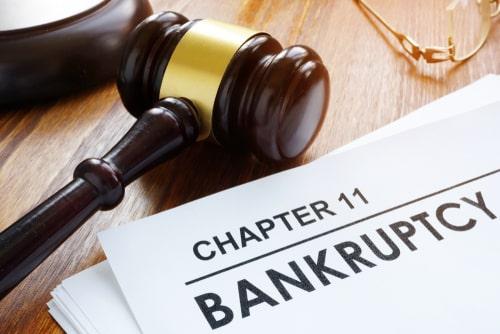 Filing for bankruptcy is an involved process. Regardless of whether you opt to file for debt relief under Chapter 7 or Chapter 13 of the U.S. Bankruptcy Code, you will have to navigate multiple steps and meet a myriad of requirements before you can secure a discharge of your qualifying unsecured debts. For example, although the safeguards afforded by the automatic stay will protect you from most collections actions while your case remains active, you will need to attend a meeting with your creditors before you can rid your mind of their power over your finances completely.
Filing for bankruptcy is an involved process. Regardless of whether you opt to file for debt relief under Chapter 7 or Chapter 13 of the U.S. Bankruptcy Code, you will have to navigate multiple steps and meet a myriad of requirements before you can secure a discharge of your qualifying unsecured debts. For example, although the safeguards afforded by the automatic stay will protect you from most collections actions while your case remains active, you will need to attend a meeting with your creditors before you can rid your mind of their power over your finances completely.
What to Expect
A filer’s 341 meeting of creditors is generally held in a conference room. This is a semi-professional gathering, so it is important to dress and behave respectfully. In attendance will be the filer, their attorney, and the trustee assigned to the filer’s case. Creditors are allowed to attend this meeting in order to ask questions and clarify information. However, unless a creditor’s interest in the filer’s case is complex or truly significant, it is unlikely that a creditor will send a representative to the meeting.
Which Assets Are Exempt in a Chapter 7 Texas Bankruptcy Case?
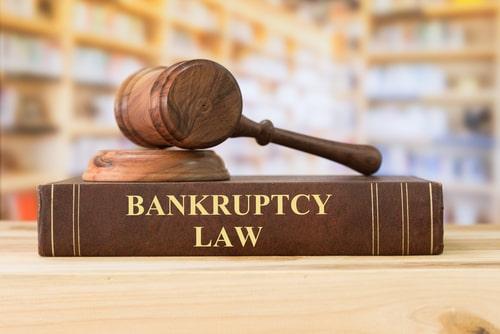 One of the primary reasons why many individuals are hesitant to file for bankruptcy is that they have heard that benefitting from the bankruptcy process will result in the loss of all of their personal property. This myth is likely grounded in the fact that Chapter 7 bankruptcy is referred to as “liquidation” bankruptcy.
One of the primary reasons why many individuals are hesitant to file for bankruptcy is that they have heard that benefitting from the bankruptcy process will result in the loss of all of their personal property. This myth is likely grounded in the fact that Chapter 7 bankruptcy is referred to as “liquidation” bankruptcy.
It is important to understand that this nickname is misleading when it comes to personal bankruptcy. Companies that file for business bankruptcy must generally liquidate their assets in order to benefit from the protection afforded by the court. However, very few individuals who file for personal bankruptcy under Chapter 7 of the U.S. Bankruptcy Code lose any of their personal property as a result of the process. Instead, their property is generally protected from sale by the trustee assigned to their case via state or federal exemptions.
Exemptions: The Basics
Exemptions insulate specific property from the risk of being sold by the trustee assigned to one’s bankruptcy case. Both the state and federal schemes offer broad exemptions that cover virtually all non-luxury property that most low-income Chapter 7 filers tend to own. As a result, it has been widely reported that approximately 95% of all Chapter 7 filers do not have any of their property sold as part of the bankruptcy process.
What Exactly Is Bankruptcy?
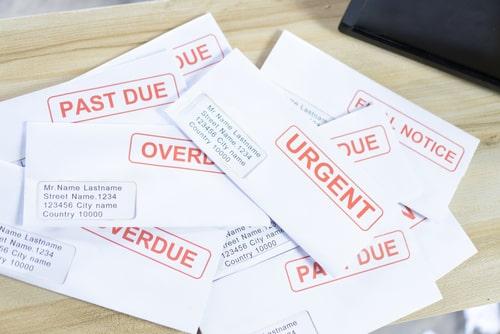 If you are struggling with overwhelming debt, you may have been encouraged to start researching what filing for bankruptcy entails. Yet, it does not make much sense to begin researching the ins and outs of the bankruptcy process until you have a strong sense of exactly what bankruptcy is and whether this opportunity may benefit your situation uniquely.
If you are struggling with overwhelming debt, you may have been encouraged to start researching what filing for bankruptcy entails. Yet, it does not make much sense to begin researching the ins and outs of the bankruptcy process until you have a strong sense of exactly what bankruptcy is and whether this opportunity may benefit your situation uniquely.
Bankruptcy Is a Form of Debt Relief
The two primary forms of personal bankruptcy that are widely available to adults living throughout the U.S. are Chapter 7 bankruptcy and Chapter 13 bankruptcy. At the end of each successful bankruptcy case – regardless of the chapter type involved – a filer’s qualifying unsecured debts will be discharged by the court.
When a discharge is entered for a specific debt, like a credit card balance or a medical bills account, the filer is absolved of responsibility for that debt. As a result, no creditor can ever seek repayment for it again. It is this absolute form of debt relief that makes navigating the complexities of the bankruptcy process worth many filers’ time and energy.
Signs That It Is Time to Start Thinking About Filing for Bankruptcy
 If you are struggling to make consistent payments on your debt-related financial obligations, you may or may not be in a position to benefit significantly from filing for bankruptcy. Certain bankruptcy alternatives are preferable for debtors who are facing unique circumstances, such as struggling to repay a single account. But, generally speaking, if you are unable to consistently repay multiple accounts, your wages are being garnished, you are risking repossession or foreclosure, or you simply cannot sleep at night due to debt-related stress, it may be time to start thinking about filing for bankruptcy.
If you are struggling to make consistent payments on your debt-related financial obligations, you may or may not be in a position to benefit significantly from filing for bankruptcy. Certain bankruptcy alternatives are preferable for debtors who are facing unique circumstances, such as struggling to repay a single account. But, generally speaking, if you are unable to consistently repay multiple accounts, your wages are being garnished, you are risking repossession or foreclosure, or you simply cannot sleep at night due to debt-related stress, it may be time to start thinking about filing for bankruptcy.
There are numerous reasons why your financial situation may benefit significantly from the bankruptcy process. Overwhelming debt can lead to relationship strain, poor work performance, and a host of other challenges that color virtually every aspect of someone’s life. If your debt has become the most urgent aspect of your finances, chances are good that you could benefit from filing for bankruptcy.
If You Qualify for Chapter 7 Relief, There Are Still Reasons to Consider Chapter 13 Instead
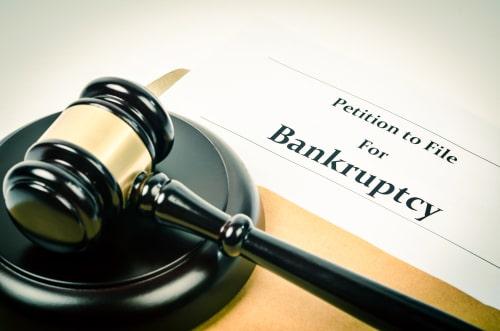 The two primary forms of personal bankruptcy that are widely available across the U.S. are Chapter 7 and Chapter 13 bankruptcy. Regardless of which type you are thinking about filing, you will benefit from a discharge of your qualifying debts at the end of a successful bankruptcy process. You will also benefit from the protection afforded by the automatic stay in either scenario.
The two primary forms of personal bankruptcy that are widely available across the U.S. are Chapter 7 and Chapter 13 bankruptcy. Regardless of which type you are thinking about filing, you will benefit from a discharge of your qualifying debts at the end of a successful bankruptcy process. You will also benefit from the protection afforded by the automatic stay in either scenario.
Yet, there are distinctions between these two forms of bankruptcy that every potential filer should be aware of. You may have heard that if you qualify for Chapter 7 bankruptcy you should embrace this opportunity because it allows for a quick discharge of debts without a repayment plan. However, there are some reasons why even low-wage earners who are eligible for Chapter 7 may want to file for Chapter 13 bankruptcy instead.
Why Consider Chapter 13 Bankruptcy?
There are two primary reasons why a filer who is eligible for a Chapter 7 discharge may want to consider Chapter 13 relief as a superior alternative.






